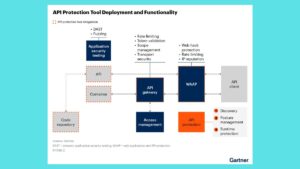From Paperwork to AI: The Evolution of HR Technology and What’s Next


The world of Human Resources (HR) has undergone a dramatic transformation in recent years. Gone are the days of endless paperwork, filing cabinets overflowing with resumes, and clunky payroll systems. Technology has revolutionized the way HR departments operate, making them more efficient, strategic, and data-driven.
In this blog, we’ll explore the fascinating evolution of HR technology, delve into the hottest trends shaping the industry in 2024, and peek into the future of HR innovation.
A Walk Through Time: The HR Tech Journey
The journey began with basic HR software in the early days, automating tasks like payroll and record-keeping. The internet revolutionized things further, allowing for online job postings, applicant tracking systems (ATS), and learning management systems (LMS).
The mid-2000s saw the rise of cloud computing and Software as a Service (SaaS) solutions. This made HR technology more accessible and affordable for businesses of all sizes. Mobile optimization became crucial as smartphones became ubiquitous, enabling employees and managers to access HR functions on the go.
The Cutting Edge: Top HR Tech Trends in 2024
The HR tech landscape is constantly evolving, and 2024 is no different. Here are some of the hottest trends shaping the industry:
- Data-Driven Hiring: Artificial intelligence (AI) and machine learning are transforming recruitment. AI can analyze resumes, conduct initial screenings, and even predict candidate performance.
- Digital Transformation of People Management: HR tech is moving beyond just automating tasks. Talent management platforms are helping organizations develop skills, manage performance, and create a positive employee experience.
- Supporting Hybrid Work Models: With the rise of hybrid and remote work models, HR technology plays a crucial role in facilitating communication, collaboration, and employee engagement in a dispersed workforce.
- Focus on Employee Wellbeing: Corporate wellness software is gaining traction, helping employees manage stress, improve work-life balance, and prioritize mental health.
- Focus on Improved Security: As HR technology processes more sensitive employee data, cybersecurity is becoming a top priority. Companies are investing in robust security measures to prevent data breaches and protect employee privacy.
- Internal Talent Marketplaces: These platforms connect employees with internal job opportunities, fostering career development and promoting talent mobility within the organization.
Looking Ahead: The Future of HR Technology
The future of HR technology is brimming with exciting possibilities. Here’s a glimpse into what we might expect:
- The Continued Rise of AI: AI will play an even bigger role in talent acquisition, performance management, and employee engagement.
- The Metaverse and the Future of Work: The metaverse may offer new ways for training, collaboration, and even conducting virtual interviews.
- Focus on Personalization: HR tech will become more personalized, tailoring experiences to individual employees’ needs and preferences.
- Blockchain Technology: This technology has the potential to revolutionize record-keeping and data security in HR.
Conclusion
The evolution of HR technology has had a profound impact on the way organizations manage their workforce. By embracing these advancements, HR can become a more strategic partner in achieving business goals, fostering a positive work environment, and attracting and retaining top talent. As technology continues to evolve, one thing is certain: the future of HR is bright and filled with exciting possibilities.






